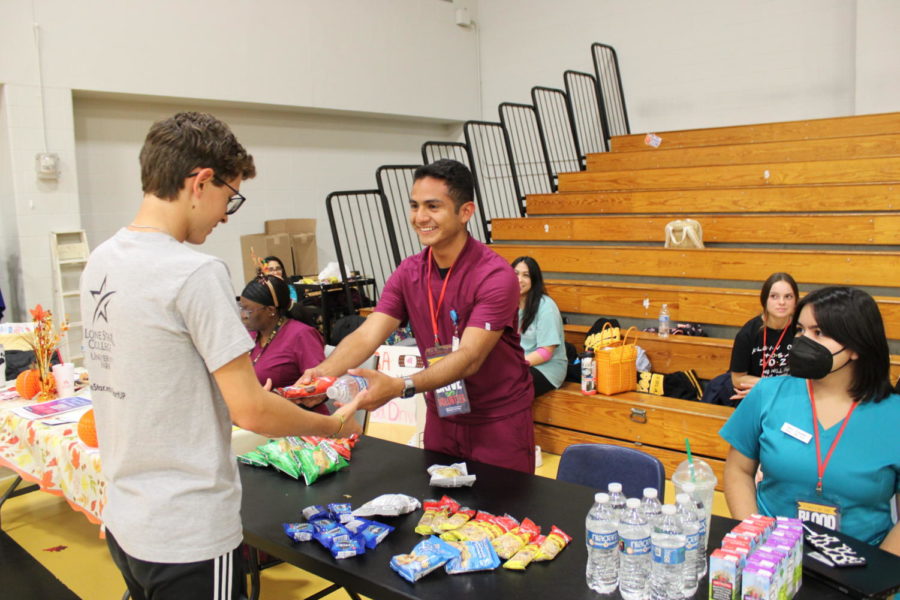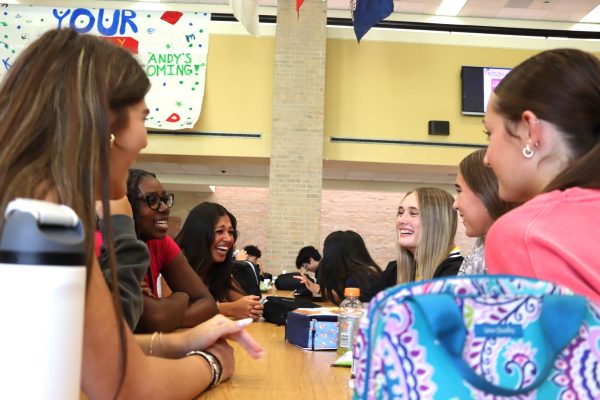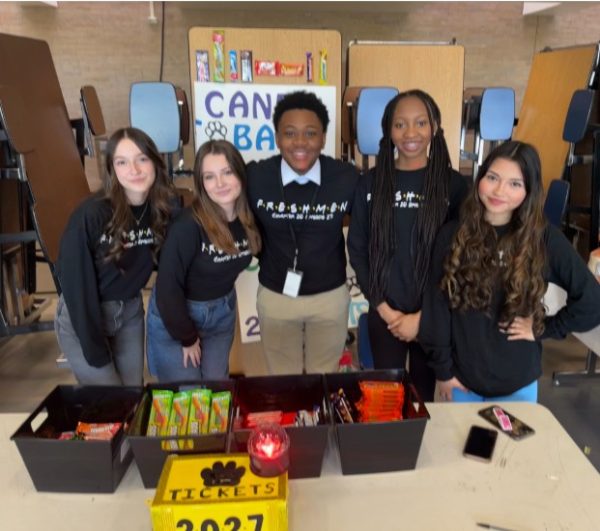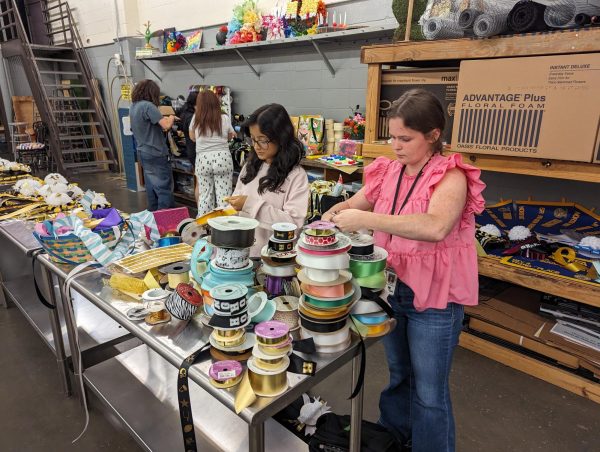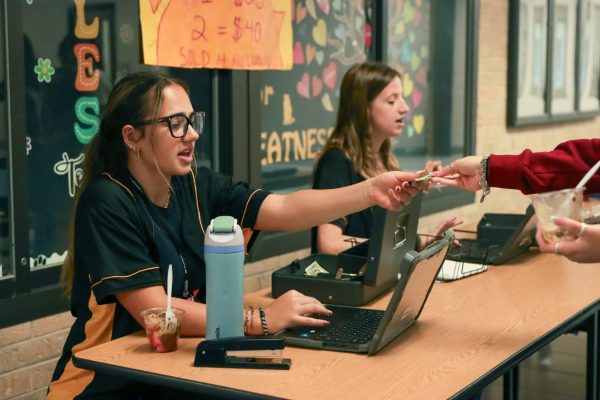Give Blood, Save Lives
Students can still participate in tomorrow’s on-campus blood drive
Blood drive volunteers hand out snacks to blood donors in the small gym. Blood donors 16-years-old and over with a parent permission slip are able to donate blood at the school.
As the pandemic continues, the rising number of infected and hospitalized people serves as a call to action for some students to help their communities by donating blood. On Wednesday, Jan. 19, all healthy students at least 16 years of age who weigh 120 pounds or more will be given the opportunity to donate blood on campus.
The Health Science classes, Health Science teachers Nestelynn Friday, Catherine Lawrence, and Jackie Carver, HOSA students (Health Occupations Students of America), and phlebotomists from the Gulf Coast Regional Blood Center are combining forces to make this semester’s blood drive a success. There are around 50 hard-working student volunteers ensuring the process goes smoothly in the weeks leading up to the drive and donation day itself.
“We run [the blood drive],” senior student volunteer Jaden Vaughan said. “We check in the people donating blood, give them snacks, and make sure that they sit down and rest after they get their blood drawn.”
For many, the decision to donate is a noble one, as each person who gives blood has the privilege of saving up to three lives. Donating blood comes with additional perks, though; seniors earn a blood donation graduation cord for participating in the blood drive twice during their senior year.
“We have students who may need blood for various conditions,” Friday said. “Students can donate blood which will help the Klein Oak HOSA organization in the Texas HOSA Blood Drive State Competition.”
The state competition acts as incentive for Texas HOSA chapters to organize and conduct blood drives at their own schools. Completing 99 to 200 units gets a chapter recognized at the bronze level, 201-400 units at the silver level, and 401 or more units at the gold level.
Red Cross officials revealed blood donation rates dropped significantly in 2021 due to the pandemic as many schools and colleges that usually participated in blood drives faced long periods of closure. Although donation amounts have declined, the need for blood has not.
“I donate blood to save lives and improve my own,” junior Ashton Hahl said. “Donating blood is healthy for you, and you can save three other lives by donating each time you do it. That’s why I plan to continue to give blood.”


